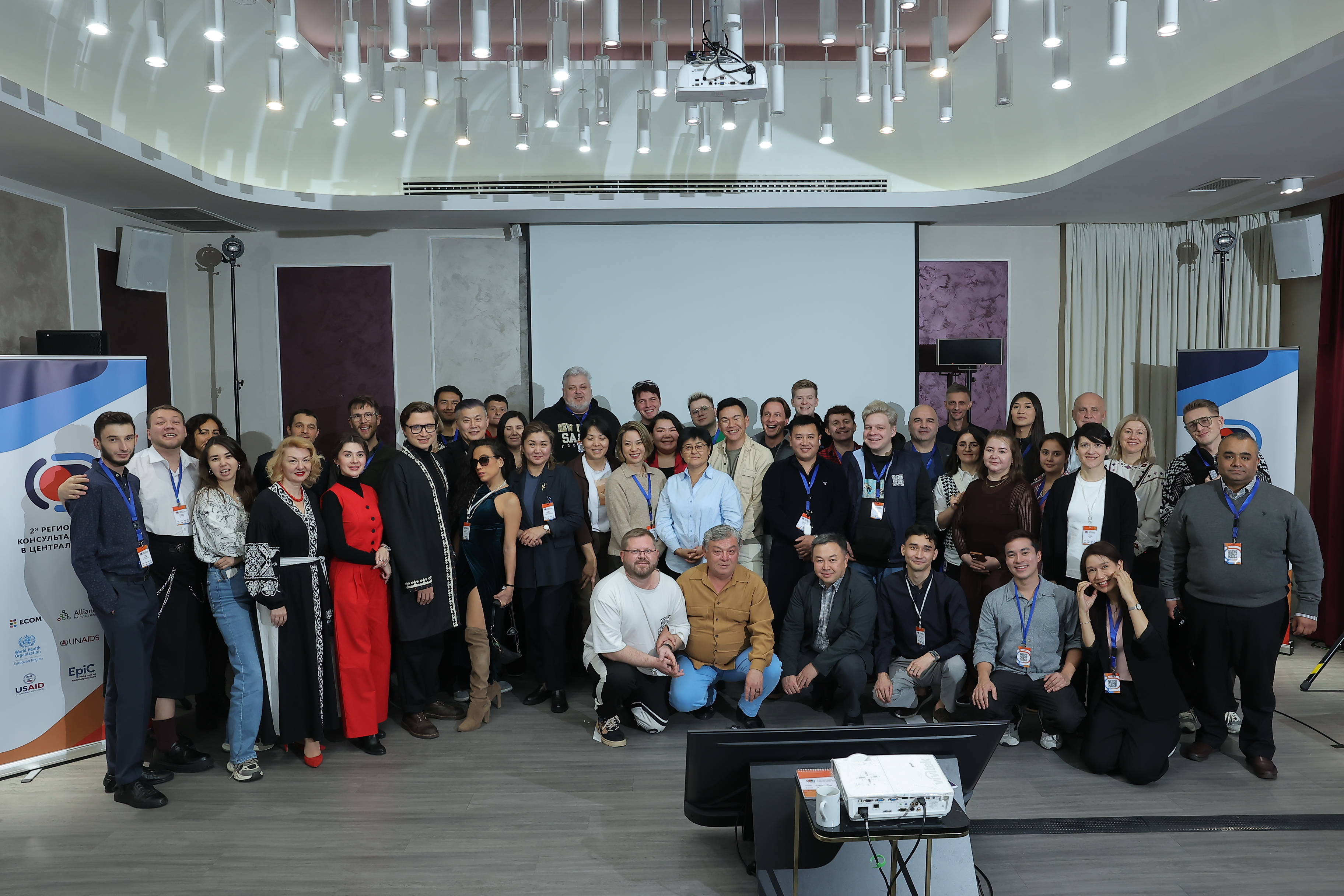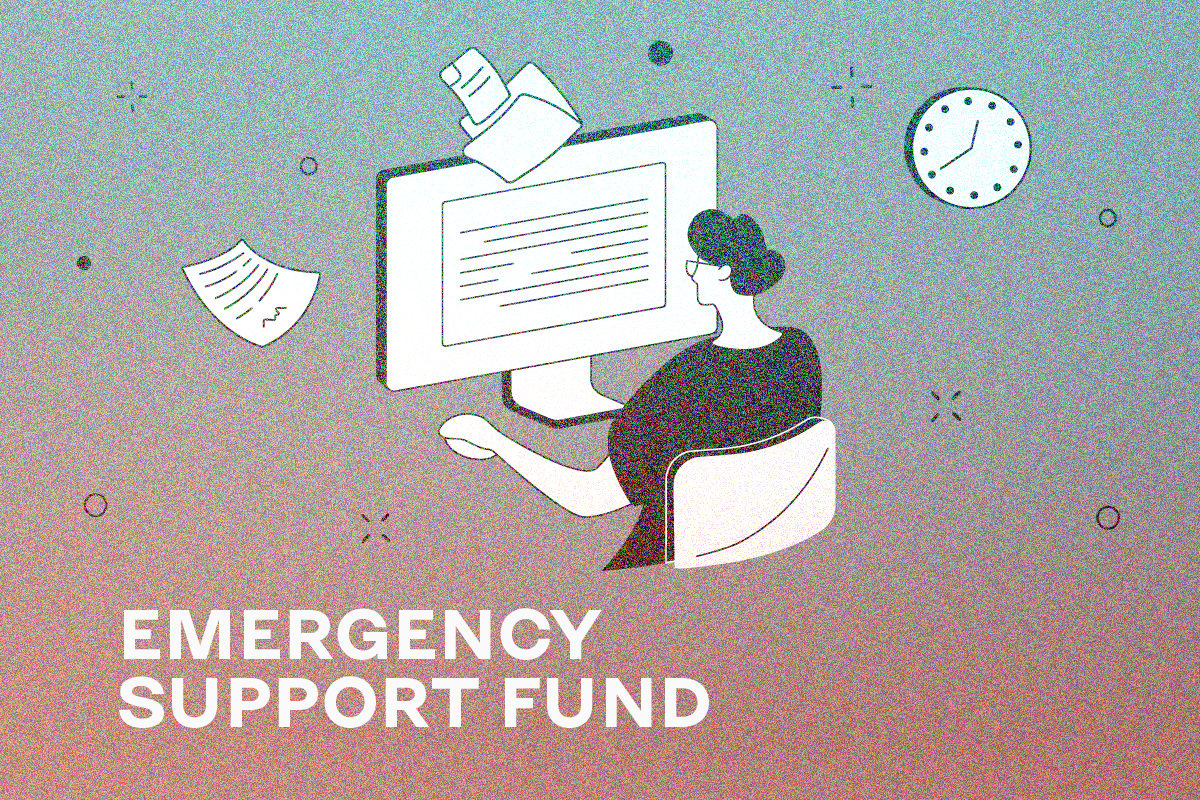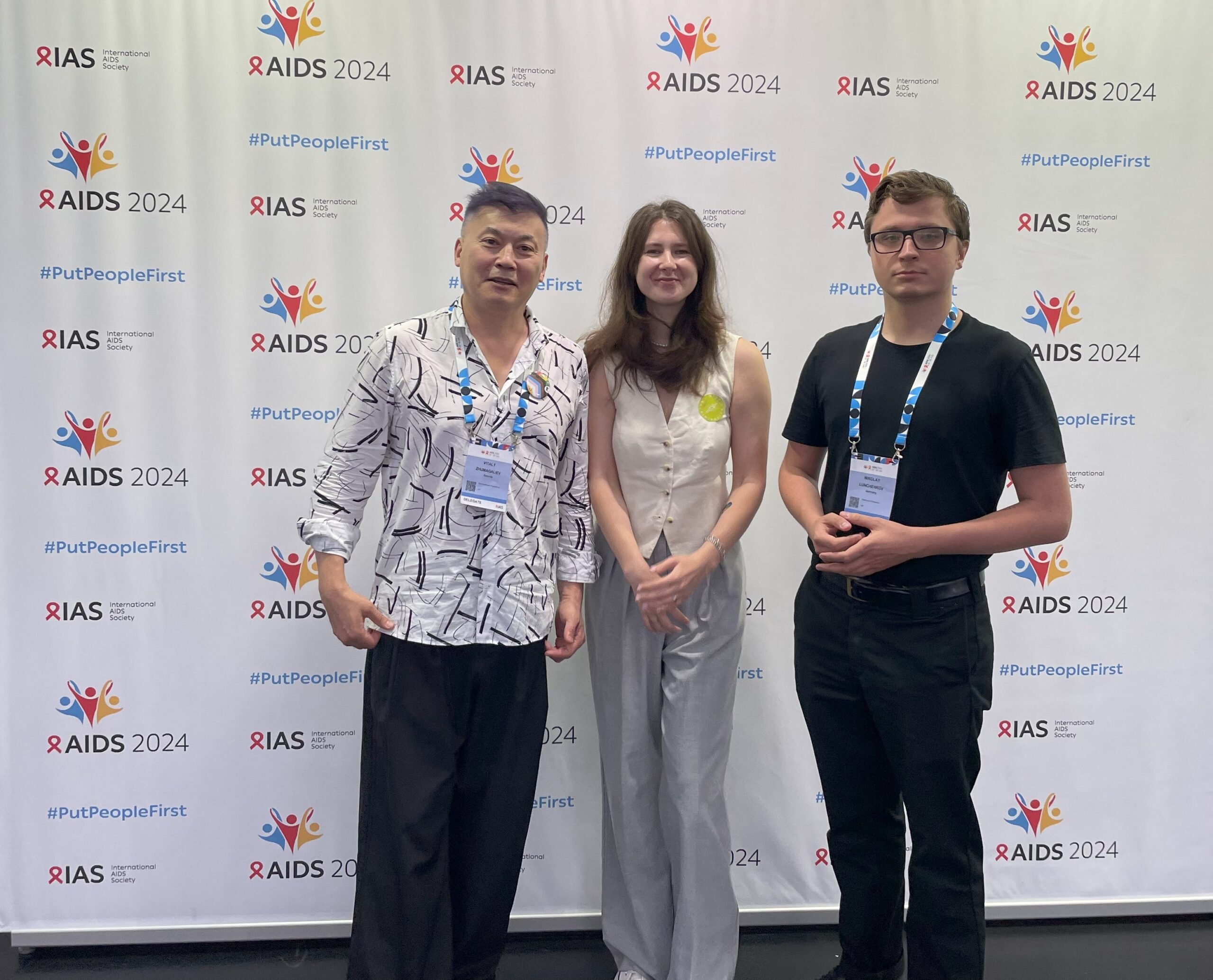On November 25–26, 2024, the 2nd Regional Consultation on HIV Pre-Exposure Prophylaxis (PrEP) in Central Asia was held in Almaty, Kazakhstan. This significant event was held for the second time: the first consultation took place in November 2023. This year, the consultation was also organized by ECOM — Eurasian Coalition on Health, Rights, Gender and Sexual Diversity (ECOM) with the support of the World Health Organization (WHO) Regional Office for Europe, the Alliance for Public Health (Ukraine) and SOS project 2.0, UNAIDS and the EpiC project (Kyrgyzstan) with the support of USAID and PEPFAR.
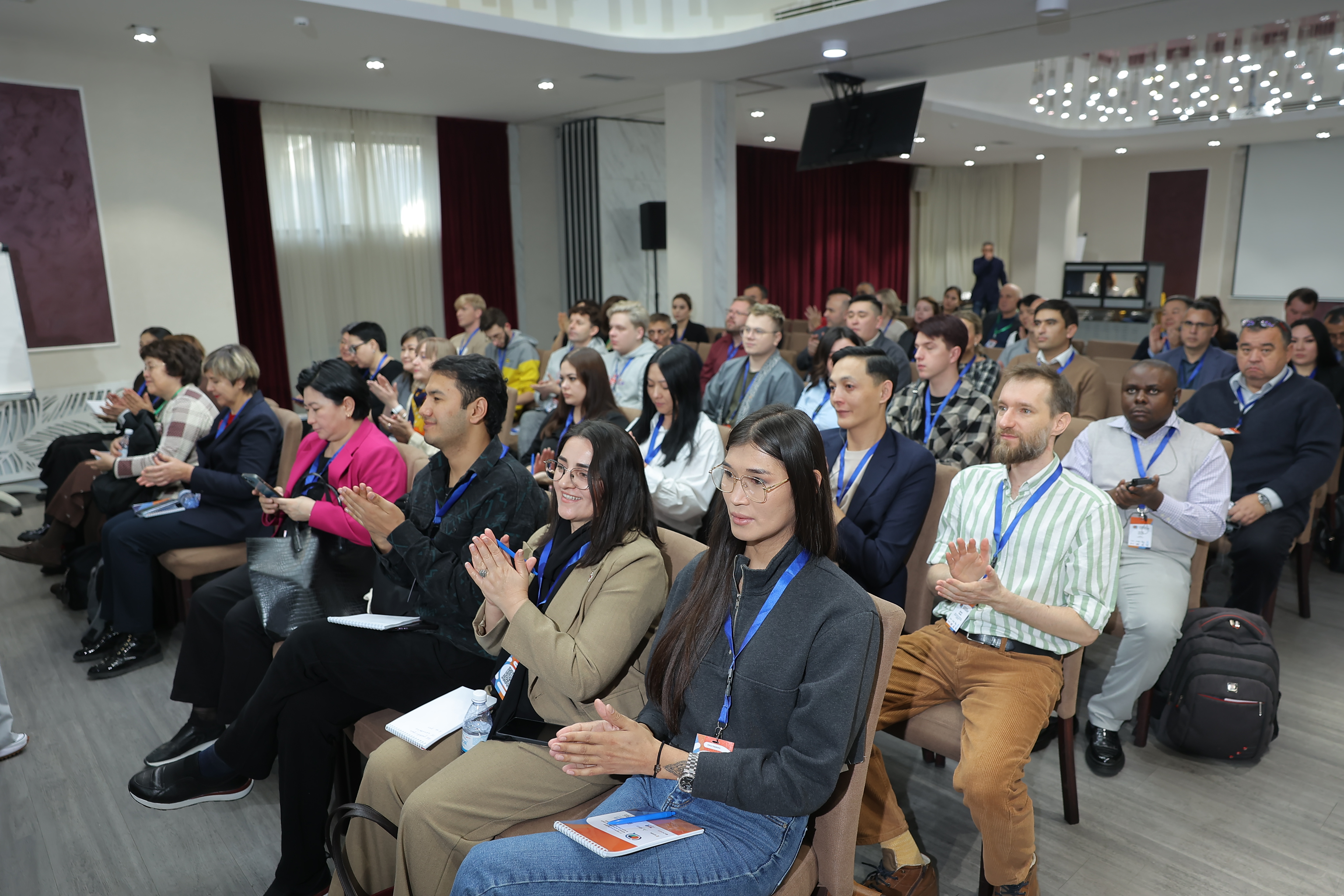
The event brought together 120 participants from 15 countries. Representatives of civil society, government agencies, international organizations and donors took part in the consultation. The main focus was on discussing best practices for monitoring and evaluating PrEP programs, decentralization models, strengthening community-led monitoring and developing new approaches for PrEP projects integration.
“Only a year has passed since the first consultation, and we can already see significant progress. Civil society, government organizations and international donors are demonstrating real achievements in improving access to PrEP in Central Asia. The key to success is collaboration of all stakeholders. We are pleased to provide a platform for frank discussion of challenges and our shared successes for the second year in a row,” said Vitaly Djuma, Executive Director of ECOM.
Over the two days of the consultation, 11 sessions were held and 39 speakers took the floor. The main topics of discussion included:
- decentralization of PrEP delivery, including integration of services into primary healthcare and pharmacies;
- experience of providing services through online platforms and communities;
- barriers to the development of PrEP programs and ways to overcome them;
- prospects for funding and sustainability of PrEP programs in Central Asian countries;
- use of international recommendations and local practices to expand the programs.
Elena German, Capacity Building Coordinator at ECOM, emphasized that the choice of topics was intentional: “Whereas the first consultation was devoted to the processes of PrEP implementation, the second focused on the development of programs, including monitoring and evaluation. These are important elements that allow us to identify successes, challenges and pathways for further improvement. The success of the event speaks for itself: for the second year in a row, we have attracted the attention of key partners and observed growing interest in our approach.”
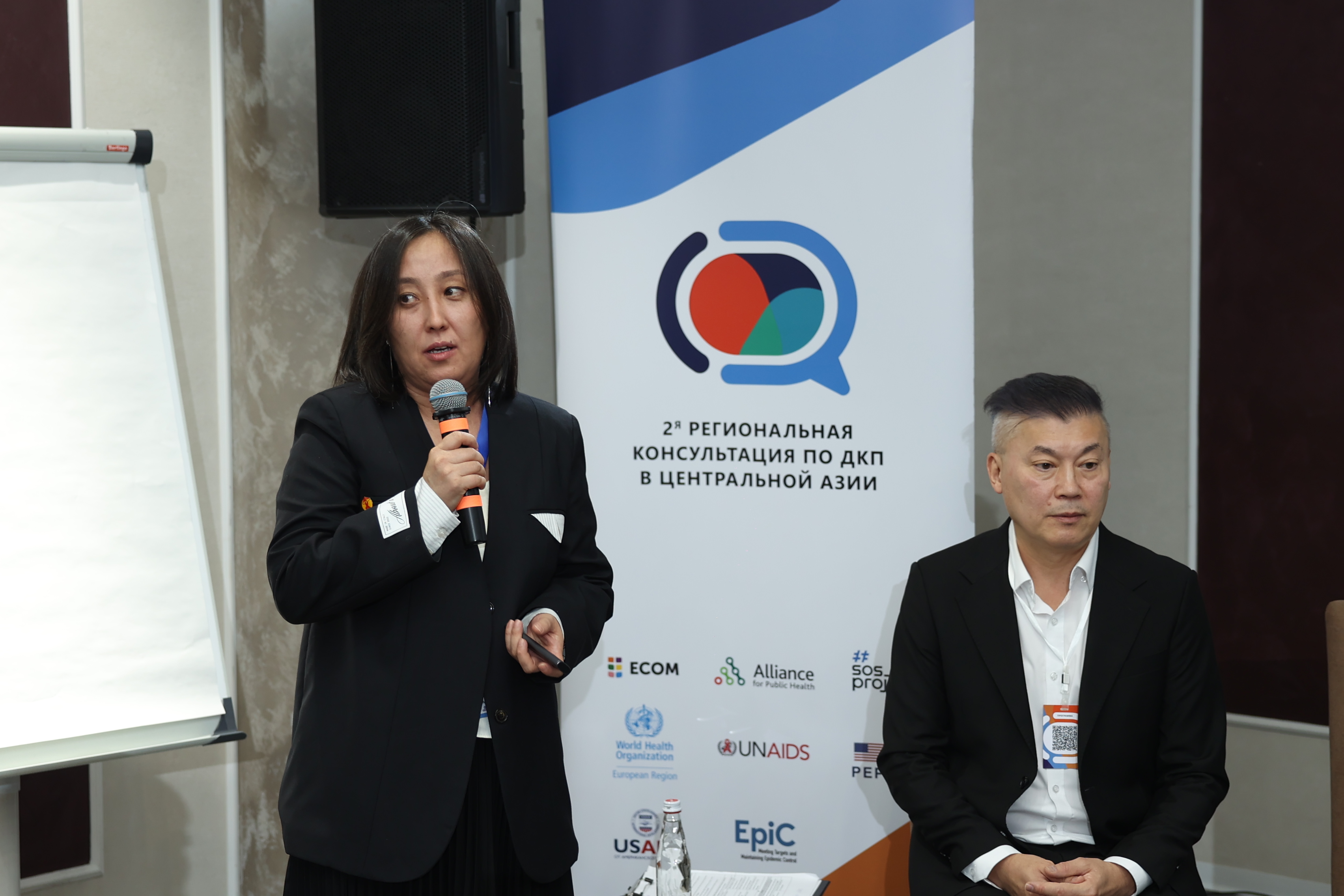
In addition, the second consultation stood out for the diversity of its participants. As Elena German noted, the program included reports not only from Central Asian countries, but also from Germany, the United States, Vietnam and Thailand: “This allowed us to show our partners how international experience can be adapted for their countries. Such exchanges strengthen regional collaboration and make PrEP programs more effective.”
Significant attention was indeed devoted to the exchange of experiences. Participants shared examples of successful initiatives and discussed the unique features of PrEP implementation in their countries.
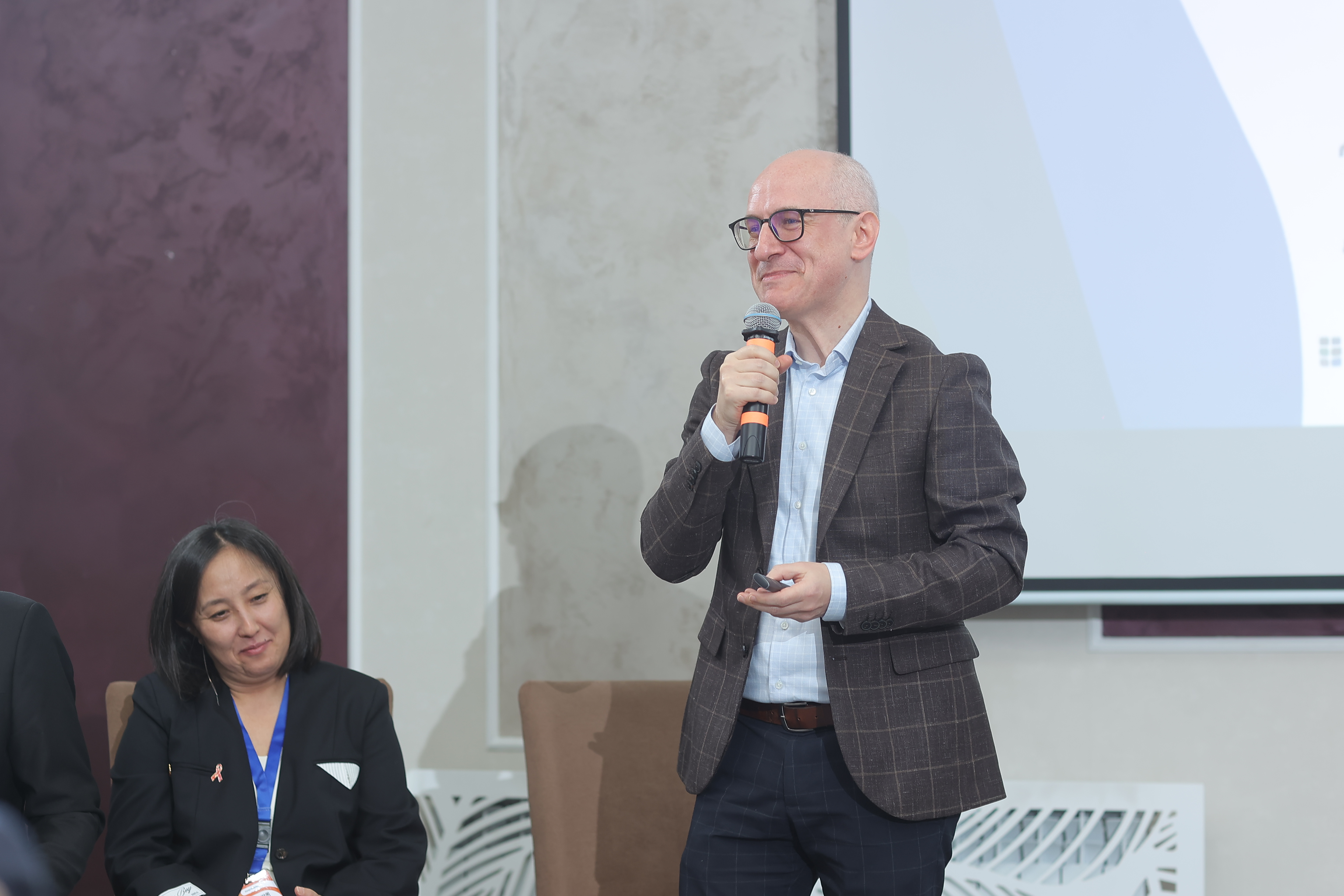
“This consultation is unique as it brings together representatives of public health, international donors and key communities. We share best global practices and WHO recommendations so that participants can adapt them to their countries. Each country is unique, and it is important that PrEP programs take into account the local context,” said Dr. Viatcheslav Grankov, Program Coordinator for HIV and STIs at the WHO Regional Office for Europe.
For many participants, the most valuable thing was the live exchange of experience. Olga Samoilova, Regional Director of the EpiC project, Kyrgyzstan, noted: “At such events, it is important to communicate with incredible people who share their experience and talk about the challenges they managed to overcome. This inspires you to return to your work with renewed vigor, because you understand that you are helping thousands of other people.”
During the consultation, the participants also discussed ways to further develop PrEP programs. Namely:
- strengthening collaboration between government and civil society organizations;
- attracting new resources to ensure sustainability of programs;
- creating platforms for continuous exchange of experience between countries in the region.
“For us in Kazakhstan, the experience of decentralization at the primary healthcare level is particularly relevant. This sector is not yet sufficiently covered by PrEP initiatives, and such consultations provide an opportunity to adopt best practices,” shared Sayrankul Kasymbekova, Head of the Clinical Monitoring Department of the Kazakh Scientific Center for Dermatology and Infectious Diseases.
The Second Regional Consultation on PrEP in Central Asia was not just a professional meeting, but an important step in strengthening collaboration and creating effective strategies in the field of PrEP. As one of the participants noted, “this is a space for inspiration, finding solutions and building a strong community of like-minded people.”
